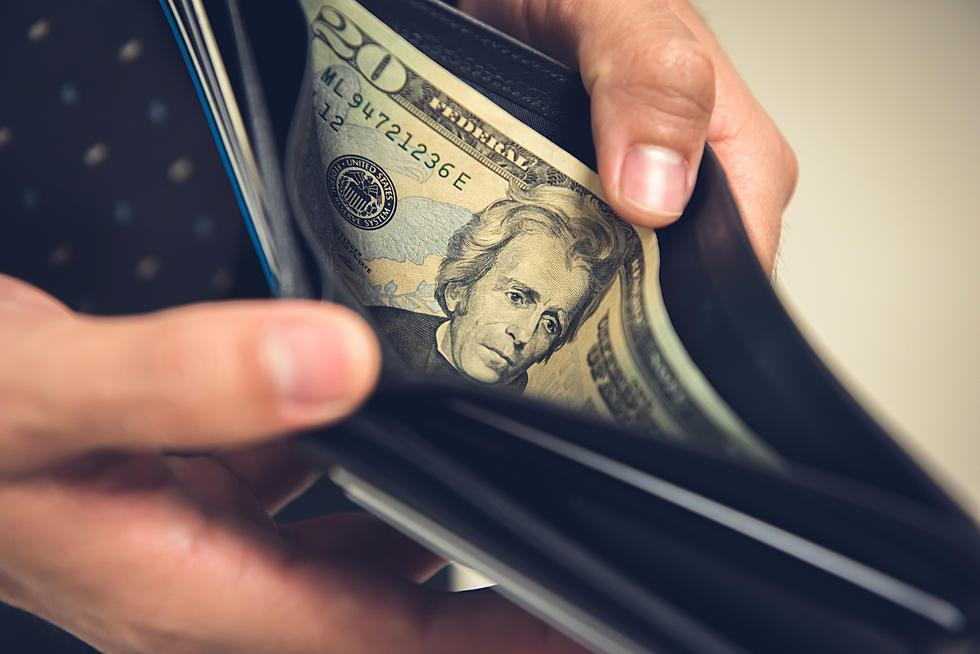
New York State Senator Hudson Valley ‘Being Robbed Blind’
A senator from the Hudson Valley is trying to help as many in the region that are "being robbed blind."
Senator James Skoufis (D-Hudson Valley) is slamming utility companies over the recent surge in energy prices throughout the Hudson Valley.
The Democrat was at a constituent’s home in New Windsor on Friday to announce that the Senate Committee on Investigations & Government Operations, which Skoufis chairs, has opened a formal investigation into the outrageous surge pricing and billing practices of utility companies and power producers.
"This isn’t a matter of Hudson Valley residents needing to tighten their belts and unplug the coffee maker once in a while - we're being robbed blind," Skoufis said in a message shared by the City of Middletown.
Document and information requests will soon be sent to Central Hudson, Orange & Rockland, ConEd, power suppliers, and state stakeholders, under threat of subpoena.
“Folks on fixed incomes – seniors, parents, disabled New Yorkers, single-income households – are being robbed blind and it has to stop," he said in a press release.
Skoufis says he's received countless complaints, which include someone paying $2,600 to keep a small home warm and $1,400 to power a small bedroom apartment.
"That’s a disgrace. It’s unsustainable, and we can’t let these utilities run roughshod over our wallets without asking the tough questions," Skoufis added
He calls the hikes by utility companies offensive and totally unsustainable.
“I seriously doubt these companies did all they could to prepare consumers for these price spikes,” Skoufis said. “Can they honestly say they didn’t see this coming? Can they honestly say they did everything in their power to assist and support customers in this time of need? Absolutely not. If there was any foul play here, we owe it to constituents to expose that wrongdoing, hold bad actors accountable, and ensure it never happens again.”
In addition to surge pricing and billing system errors, areas of focus for the Senate’s investigation will include the state’s action - or lack thereof - as utility regulators, and the poor communication between utilities and ratepayers.
Last month, Hudson Valley Post reported Central Hudson warned customers their bills are going to increase.
Central Hudson warned bills for natural gas will increase by about 19 percent, electric bills will increase by 46 percent, and about 29 percent for combination electric and natural gas bills.
Central Hudson said the increase is due to increases in supply prices for both electricity and natural gas as the region navigates a colder than average winter and as global energy factors come into play, prompting an increase in the demand and price for energy.
Supply prices are market-based and not marked-up by Central Hudson, officials say.
"These bill increases are temporary and may vary for individual customers depending on energy usage and their billing cycle," Central Hudson said in February.
However, Central Hudson now believes "higher costs will be sustained through much of 2022."
Company officials say the events in eastern Europe are partially to blame.
Energy supply prices, which are market-based and which Central Hudson does not mark up nor profit on, have risen, company officials say.
Electricity and natural gas are provided by independent generators and suppliers in the competitive energy marketplace. The prices for other utility bill components, including taxes and delivery charges, are regulated and stable. Utility bills reflect both the price of energy and usage.
The supply price for natural gas rose 24 percent in March, due to global and domestic factors, officials say.
Heating oil and gasoline prices are up about 40 percent compared to last year, according to Central Hudson.
“Higher energy costs harm our customers and the communities we serve,” Freni added. “The energy resources produced in the United States now supply both domestic and international needs. We must ensure that state and federal policies allow for the expansion of critical energy infrastructure of all types to ensure robust and diverse energy supplies at stable prices, particularly as we transition to lower carbon resources.”
Reasons for the price increase
Contributing to higher prices for electricity and natural gas include:
- Increased domestic demand due to colder weather this year as compared to last year.
- Constrained domestic pipeline capacity curtails gas supplies.
- Lower electric production by renewable generators in the winter shifts power production to generators using natural gas.
- Regionally, increased reliance on natural gas for power generation following the closure of Indian Point.
- Increased global demand for natural gas, as the United States is now a primary exporter of liquefied natural gas to Europe due to shortages there.
- Increase domestic demand for electricity and natural gas as the economy recovers from closures prompted by the COVID-19 pandemic.
Energy Efficiency and Billing Programs
Low-cost and no-cost efficiency measures homeowners can take to help manage energy costs include:
- Insulating ducts and hot water pipes where they run through uninsulated areas, such as crawl spaces, and repairing leaks in the duct system;
- Adding insulation, particularly in the attic;
- Turning down thermostats (each degree saves up to three percent on energy use);
- Keeping radiators and heating ducts clear of furniture to allow heat to circulate freely; and/or
- Sealing air leaks with weather stripping and caulk, which can save up to 10 percent on the use of heating fuels.
LOOK: Here are 25 ways you could start saving money today
50 Famous Brands That No Longer Exist
READ ON: Here's how to apply for rent relief
More From Hudson Valley Post









